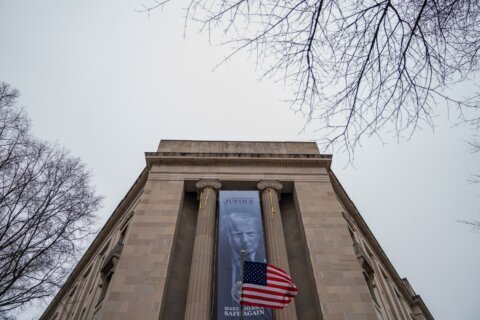The District’s entrance into legalized gambling — by way of legalized sports betting — only adds to the gambling industry’s heavy growth throughout the D.C. region.
Initially fueled by Maryland casinos, as well as the Hollywood Casino in Charles Town, West Virginia, the capital region has been the fourth biggest market for legalized gambling across the United States in recent years.
“The D.C. region, which includes Baltimore and West Virginia, is now the fourth-largest gaming market in the country, behind only Nevada, New Jersey and Pennsylvania,” said Casey Clark, a senior vice president for communications with the American Gaming Association.
“You saw pretty significant growth when MGM National Harbor came online,” said Clark.
“A lot of people around our area and across the country are increasingly looking for opportunities to engage with casino properties for their entertainment. And I think it’s not just going to the casino floor. I think you’re seeing people go to the great concert venues or go to the great restaurants.”
With Maryland and Virginia moving closer to joining the District in allowing legalized sports betting to operate, Clark said the region is poised for even more growth, at least when people start to feel comfortable congregating in casinos and other entertainment venues.
Legalizing betting on sports in the neighboring states could prove convenient since state and local governments are staring at future budget issues due to the coronavirus pandemic and its impact on tax revenues.
“Gaming revenue generates a lot of money to state coffers,” said Clark.
Maryland’s education fund, in particular, gets significant amounts of money from gaming taxes.
That all but dried up beginning in March, as the coronavirus pandemic caused any tax revenue from the gaming world to only trickle into state economies.
Maryland collected no casino revenue at all for the month of April, compared with $60.2 million over the same period in 2019.
“As governors and mayors look to opportunities to how they can address those shortfalls, I would be surprised if states and jurisdictions that haven’t legalized sports betting, if this wasn’t on the table,” said Clark.








